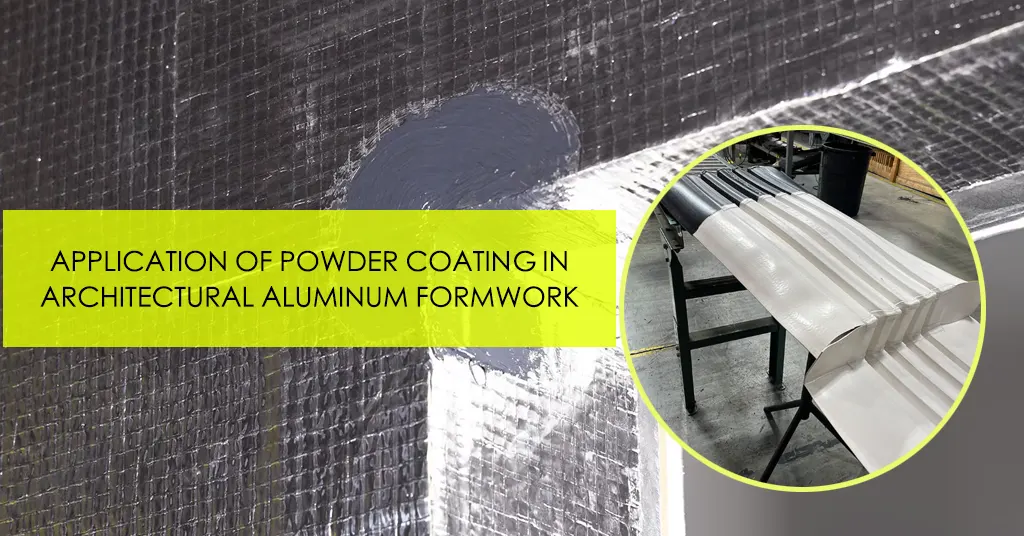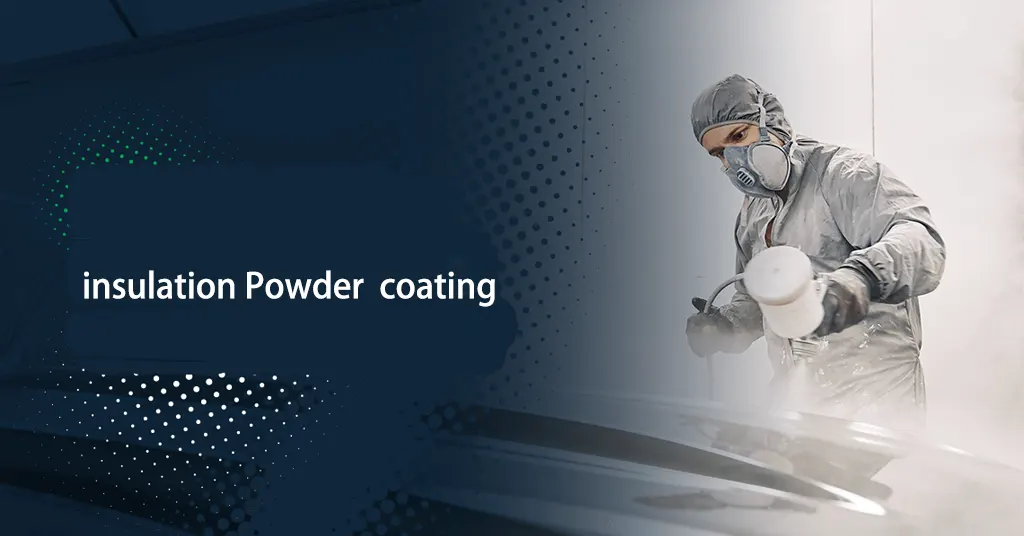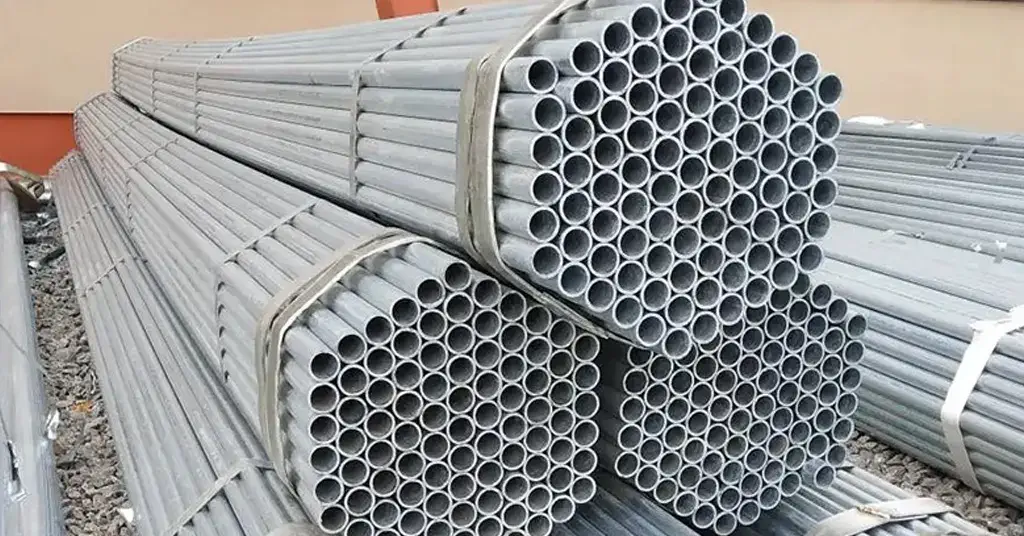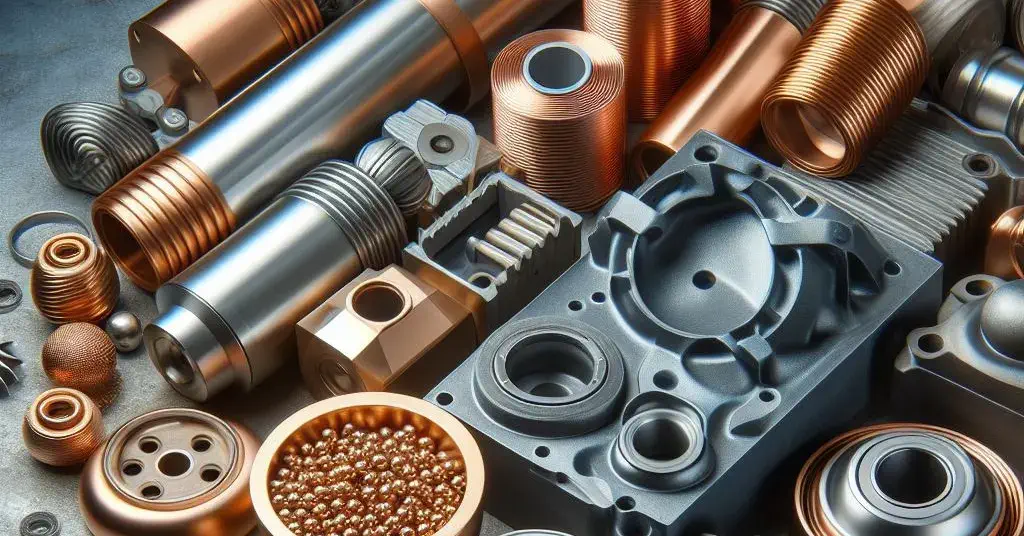Pure Polyester Powder Coating
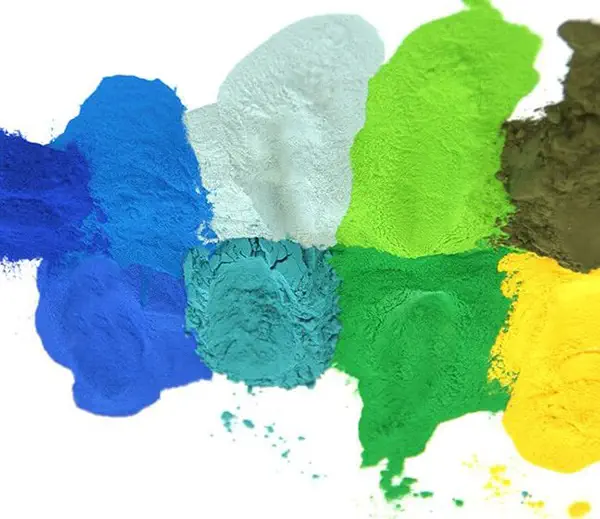
Pure Polyester Resin Powder Coating (TGIC & HAA/Primid)
- System: TGIC Curing ; Primd/HAA Curing
- Sample: Free Sample Supported
- Color : Customized Supported
- Gloss : 15-95% (Smooth Surface At 60°),Customized Supported
- Surface : Smooth Or Texture ; Customized Supported
- Package : 20KG Or 25KG/Carton Or Customized Supported
- Delivery : In 2-5 Days
Product Performance
- Great Weatherability Performance
- Anti Yellowing Performance
- Excellent Luster And Color Integrity
- Excellent Mechanical And Chemical Performance
- Great Leveling And Gloss
- Great Anti Heat Property,Suitable For Long-Term Outdoor Exposure Product , Good Outdoor Durability
| Density | 1.2-1.8 G/cm³ |
| Film | Film Thickness :40u~150um , Best Recommendation Is 40um~80um |
| Utilization Rate | Average Coverage : 10~12 Square Meter/KG ,With 60um (100% Use Rate) |
| Curing Condition | 160°C/10min;180°C/10min ;180°C/15min;190°C/15min ;200°C/10min; Or Customized According To Requirements |
| Method | Corona Electrostatic Spraying ,Electrostatic-Fluidized Bed, Fluidized Beds,Tribo Charging Guns |
| Applicaiton | Mainly Used For Outdoor Units Of Air Conditioners, Park Appliances, Lamp Posts, Outdoor Furniture, Lawn Mowers, Agricultural Machinery, Etc. It Has The Function Of Decoration And Outdoor Weather Resistance. |
| Transportation | Two Layers Of Polyvinyl Chloride Plastic Bags In Carton Package, 20 /25kg Per Carton. Non-Dangerous Goods Can Be Transported In Various Ways, But Avoild From Direct Sunlight, Moisture And Heat, And Contact With Chemical Substances. |
| Safety | Non Toxic Substances, And There Is No Toxic Gas Generated During Baking, But Avoid Inhaling Dust During Use, Operators Should Wear Dust Masks, And Minimize The Long-Term Contact Between Skin And Powder Coatings, Which Adhere To The Skin The Paint On The Surface Can Be Cleaned With Soap. |
What are the advantages of using pure polyester powder coating?
- Excellent UV resistance: Pure polyester powder coatings are known for their outstanding resistance to ultraviolet (UV) rays. This makes them ideal for outdoor applications where exposure to sunlight can cause color fading and degradation.
- Color and gloss retention: Pure polyester coatings maintain their color and gloss over time, even in harsh environmental conditions. This ensures that the coated surface looks attractive and vibrant for an extended period.
- Durability: Polyester powder coatings are highly durable and can withstand abrasion, impact, and chemical exposure. This durability makes them suitable for applications that require long-lasting protection and aesthetics.
- Weather resistance: These coatings are resistant to various weather elements, including rain, snow, and temperature fluctuations. They can withstand extreme weather conditions without deteriorating.
- Corrosion resistance: Pure polyester powder coatings provide excellent corrosion resistance, making them suitable for use in coastal areas or in environments with high humidity.
- Wide color range: Polyester powder coatings offer a wide range of color options and finishes, including matte, gloss, and metallic effects. This versatility allows for creative and customized design choices.
- Environmental friendliness: Polyester powder coatings are solvent-free and emit very low levels of volatile organic compounds (VOCs) during application. This makes them environmentally friendly and compliant with strict air quality regulations.
- Cost-effective: These coatings can be applied efficiently and have a high transfer efficiency, reducing material waste and overspray. This can result in cost savings in the coating process.
- Easy maintenance: Surfaces coated with pure polyester powder coatings are easy to clean and maintain, requiring minimal effort to keep them looking good.
- Versatility: Pure polyester powder coatings can be applied to a wide range of substrates, including metal, aluminum, and some plastics. They are used in various industries, such as automotive, architecture, appliances, and furniture.
What are the differences between pure polyester and epoxy powder coatings?
| Epoxy Powder Coatings | Pure Polyester Powder Coatings | |
| Chemistry | Epoxy powder coatings are based on epoxy resins, which are known for their excellent adhesion to metal substrates. They cure through a chemical reaction involving amines or acid anhydrides, forming a hard and rigid film. | Pure polyester powder coatings are based on polyester resins. They cure through a chemical reaction involving a polyester cross-linker and heat, producing a tough and flexible film. |
| Adhesion | Epoxy coatings offer exceptional adhesion to a wide range of substrates, including metals and certain plastics. They are often used as a primer coat for improved adhesion with subsequent topcoats. | Pure polyester coatings also provide good adhesion, especially to metal surfaces, but they may not adhere as strongly to some plastics as epoxy coatings do. |
| Chemical Resistance | Epoxy coatings are highly resistant to chemical exposure, making them suitable for applications where protection against corrosive substances is critical. | Pure polyester coatings offer good chemical resistance but may not be as resistant as epoxy coatings to certain chemicals and solvents. |
| Flexibility | Epoxy coatings tend to be more rigid and less flexible compared to pure polyester coatings. They can be susceptible to chipping or cracking under mechanical stress. | Pure polyester coatings are known for their flexibility and elasticity, making them better suited for applications where the coated surface may experience bending or flexing. |
| UV Resistance | Epoxy coatings are less resistant to UV radiation and may experience color fading and degradation when exposed to sunlight for extended periods. | Pure polyester coatings offer excellent UV resistance and are often used in outdoor applications where color retention is crucial. |
| Outdoor Durability | Epoxy coatings are primarily used for indoor applications due to their limited UV resistance and lower outdoor durability. | Pure polyester coatings are well-suited for outdoor applications, thanks to their superior UV resistance and weatherability. |
| Appearance | Epoxy coatings typically have a smoother, glossy finish. | Pure polyester coatings can provide a range of finishes, including matte, semi-gloss, and gloss, as well as textured and metallic effects. |
What industries commonly use pure polyester powder coating?
- Architectural and Construction: Pure polyester coatings are extensively used in architectural applications, such as metal facades, windows, doors, and fencing. They offer excellent UV resistance, weatherability, and color retention, making them ideal for exterior building components.
- Automotive: Pure polyester powder coatings are used on automotive components like wheels, trim, and grilles. They provide durability and resistance to road chemicals, UV exposure, and weather conditions.
- Furniture: The furniture industry often uses pure polyester coatings on metal and aluminum furniture pieces. These coatings offer a wide range of colors and finishes, allowing for customization and aesthetic appeal.
- Appliances: Household appliances like refrigerators, washing machines, and ovens use pure polyester coatings to provide a durable and scratch-resistant finish. The coatings also offer resistance to moisture and chemicals.
- Outdoor and Recreational Equipment: Products like playground equipment, outdoor seating, and sports equipment benefit from pure polyester coatings due to their outdoor durability and resistance to wear and tear.
- Agricultural Equipment: Tractors, trailers, and other agricultural machinery often feature pure polyester powder coatings to withstand the challenging outdoor conditions and chemical exposure in farming environments.
- Lighting: Light fixtures and streetlights often use pure polyester coatings for their ability to maintain their appearance and functionality under exposure to UV rays and outdoor elements.
- Electronics: Electronic enclosures and cabinets are coated with pure polyester powders for their electrical insulation properties and protection against environmental factors.
- Signage and Display: Signage, advertising displays, and outdoor signs benefit from the UV resistance and vibrant color options of pure polyester coatings.
- Marine.: While not as common as other coatings like marine-grade epoxy, pure polyester coatings can be used on non-submerged marine components like boat trailers and deck equipment due to their resistance to saltwater and UV radiation.
- Industrial Equipment: Various industrial machinery and equipment, including shelving, racks, and material handling systems, use pure polyester coatings for their durability and protection against harsh working conditions.
- Railway and Transportation: Train components, railway infrastructure, and transportation equipment often utilize pure polyester powder coatings for their resistance to environmental stresses and extended service life.
- Healthcare: Medical equipment and devices may be coated with pure polyester powders for their ease of cleaning, resistance to disinfectants, and overall durability.
Are there any limitations or considerations when using pure polyester powder coating?
| Limited Chemical Resistance: Pure polyester coatings provide good chemical resistance, but they may not be suitable for environments where exposure to highly aggressive chemicals or solvents is a concern. In such cases, epoxy or other specialized coatings may be more appropriate. | Lower Hardness: Pure polyester coatings are generally not as hard as some other types of powder coatings, such as epoxy or polyurethane. This can make them more susceptible to surface damage, such as scratching or chipping, in applications where abrasion resistance is critical. |
| Not Suitable for High-Temperature Applications: Pure polyester coatings have a lower heat resistance compared to some other powder coating types. They are typically not recommended for use in applications where sustained high temperatures are expected. | Limited Adhesion to Some Plastics: While pure polyester coatings exhibit good adhesion to metal substrates, their adhesion to certain types of plastics may be limited. Proper surface preparation and adhesion promoters may be required for plastic substrates. |
| UV Resistance Variability: While pure polyester coatings are generally UV resistant, the exact level of resistance can vary depending on the specific formulation and quality of the coating. It's important to choose a high-quality coating for outdoor applications requiring extended UV exposure. | Complex Curved Surfaces: Pure polyester powder coatings may not flow well over complex curved surfaces. In such cases, it may be challenging to achieve an even and uniform coating thickness, potentially leading to appearance issues |
| Color Matching: Achieving precise color matching with pure polyester coatings can sometimes be challenging. Variations in color can occur due to differences in application methods, substrate types, and curing conditions. | Maintenance: While pure polyester coatings are generally easy to maintain, they may require periodic cleaning and maintenance to preserve their appearance, especially in outdoor applications subject to environmental pollutants. |
| Environmental Regulations: Ensure compliance with local environmental regulations when using powder coatings, as the curing process typically involves the release of heat, which may require proper ventilation and emission controls. | Surface Preparation: Proper surface preparation, including cleaning and pretreatment, is essential to ensure good adhesion and coating performance. Inadequate surface preparation can lead to adhesion problems and premature coating failure. |
| Film Thickness: Over-application or under-application of powder coating can lead to quality issues. It's crucial to follow the manufacturer's recommendations for film thickness to achieve the desired performance and appearance. | Cost: While powder coatings can be cost-effective in the long run due to their durability and efficiency, the initial setup and equipment costs for powder coating application can be relatively high compared to other finishing methods. |
FAQs About Pure Polyester Powder Coating
Pure polyester powder coating works by applying dry powder to a substrate, then heating it to melt and cure, forming a durable and protective film.
Yes, pure polyester powder coatings are suitable for outdoor use due to their excellent UV resistance and weatherability.
Pure polyester powder coating is applied using electrostatic spray equipment or fluidized bed coating. The coated part is then heated to melt and cure the powder.
Typical curing temperatures for pure polyester powder coatings range from 300°F to 400°F (150°C to 200°C), and curing times vary from 10 to 30 minutes, depending on the formulation.
Yes, pure polyester powder coatings offer a wide range of color options, including matte, gloss, metallic, and textured finishes.
While they are primarily used on metal, some pure polyester coatings can adhere to certain plastics and wood with proper surface preparation.
Yes, pure polyester powder coatings can be customized for specific applications by adjusting the formulation to meet specific performance requirements.
Surfaces coated with pure polyester powder coating can have a long lifespan, often exceeding 10 years, depending on the application, environmental conditions, and maintenance practices.
Have Anything To Ask Us?
